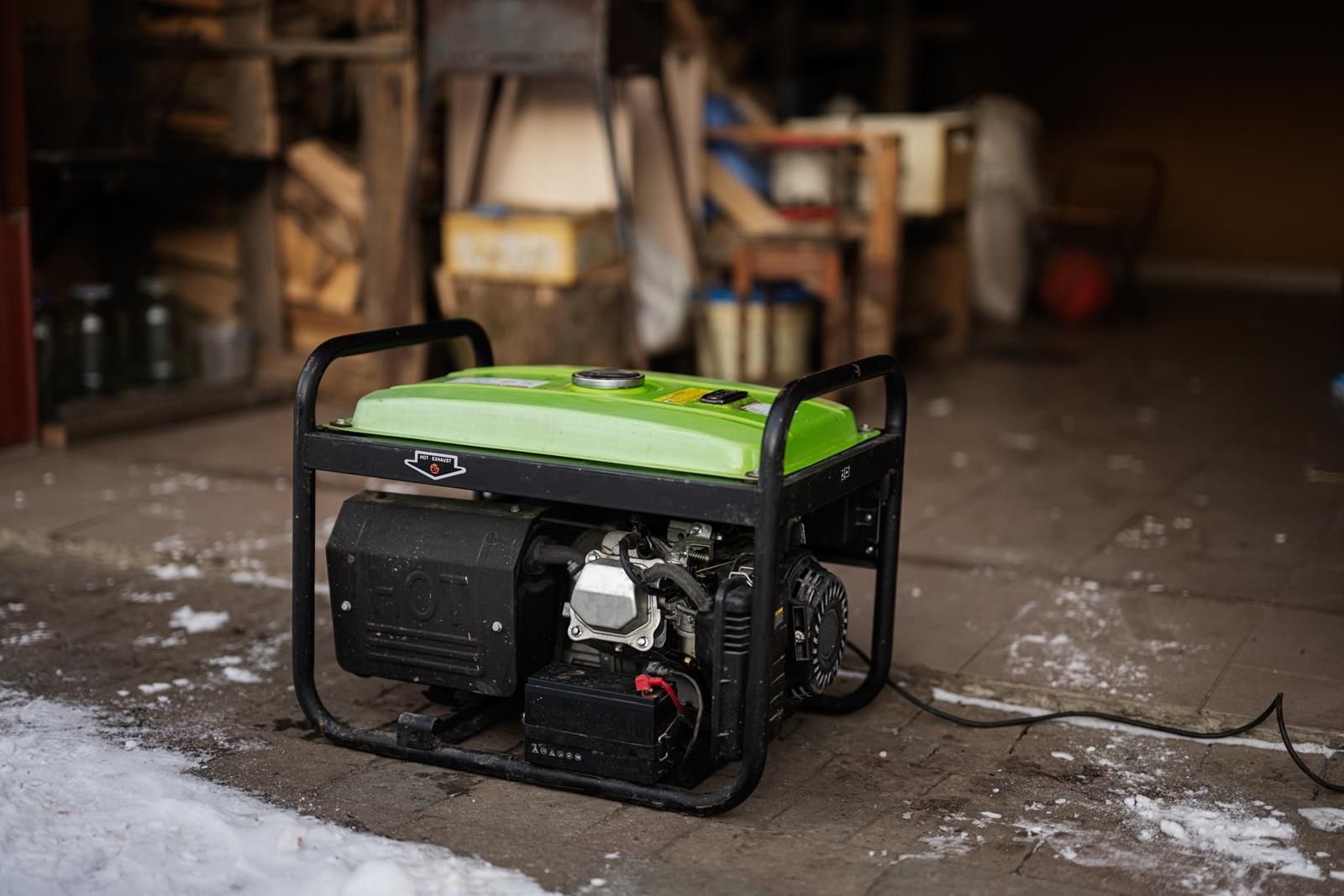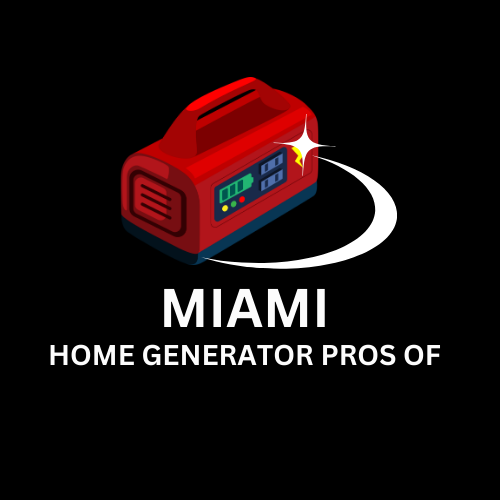Portable Generators in Miami FL
A portable generator can be a vital asset for homeowners and businesses alike. Whether you're preparing for a storm, hosting an outdoor event, or seeking a reliable backup power source, understanding the basics and nuances of portable generators is crucial. A portable generator is a versatile device designed to supply electrical power in locations where the main power grid is unavailable or insufficient. Unlike stationary generators, portable models are compact and mobile, allowing them to be used in various settings, from residential homes to construction sites and outdoor gatherings. The primary purposes of a portable generator include providing emergency power during outages, supporting outdoor activities, and powering tools and equipment in remote areas.
Different Types and Key Features to Consider
Portable generators come in several types, each tailored to different needs and preferences.
- Inverter Generators: These generators are known for their quiet operation and clean power output, making them ideal for sensitive electronics and residential use. They are more fuel-efficient and can be connected in parallel with another inverter generator for increased power capacity.
- Conventional Generators: These models are typically more affordable and offer a higher power output compared to inverter generators. They are suitable for heavy-duty applications but tend to be noisier and less fuel-efficient.
- Dual-Fuel Generators: As the name suggests, these generators can operate on either gasoline or propane, offering flexibility and convenience. They provide the advantage of using readily available fuels and can be useful in situations where one fuel type might be scarce.
When choosing a portable generator, consider key features such as power output (measured in watts), fuel efficiency, runtime, noise level, and ease of transportation. Additional features like electric start, automatic voltage regulation, and a variety of outlets can also enhance usability and convenience.

Importance and Applications
Portable generators play a significant role in various applications. In Miami, where weather conditions can be unpredictable, having a portable generator ensures you’re prepared for power outages caused by storms or hurricanes. They are also invaluable for outdoor events such as barbecues, tailgates, or camping trips, where access to electricity might be limited. Additionally, they provide essential power for tools and equipment on construction sites or during home improvement projects, making them a versatile tool for both personal and professional use.
Regular Maintenance & Safe Operation
Maintaining your portable generator is essential for ensuring its reliability and longevity. Regular maintenance tasks include checking and changing the oil, replacing air and fuel filters, and inspecting spark plugs. It’s also important to keep the generator clean and free from debris to prevent overheating and potential damage.
Safety is paramount when operating a portable generator. Always use the generator outdoors in a well-ventilated area to avoid the risk of carbon monoxide poisoning. Never operate the generator indoors or in an enclosed space, and ensure that it’s properly grounded. Following the manufacturer’s guidelines and safety instructions will help you use the generator safely and efficiently.
Recommendations for Long-Term Storage
Proper storage of your portable generator can significantly extend its lifespan and ensure it’s ready for use when needed. Before storing the generator for an extended period, perform a thorough cleaning and maintenance check. Empty the fuel tank and run the generator until it runs out of fuel to prevent stale fuel issues. Store the generator in a dry, cool place away from direct sunlight and moisture. Cover it with a protective cover to shield it from dust and debris. Regularly check the generator during storage to ensure it remains in good condition.
Choosing the Right Portable Generator for Your Needs
Selecting the right portable generator involves evaluating your specific power needs and usage scenarios. Consider factors such as the total wattage required to power your essential devices or appliances, the type of fuel you prefer, and the generator’s portability features. If you need a generator for sensitive electronics, an inverter generator might be the best choice. For more substantial power needs and varied applications, a conventional or dual-fuel generator might be more suitable. Assessing these factors will help you choose a generator that best meets your needs and provides reliable performance.
Benefits of Using a Portable Generator
Portable generators offer numerous benefits, including increased convenience, reliability, and versatility. They provide a dependable power source during outages, ensuring that your essential devices and appliances remain operational. They are also perfect for outdoor activities, allowing you to enjoy electricity wherever you go. Additionally, portable generators can enhance productivity on job sites by providing power for tools and equipment. Their ability to operate on different fuel types and their mobility further add to their appeal, making them a valuable investment for both emergency preparedness and everyday use.
Reputable Brands and Warranty Options
When purchasing a portable generator, choosing a reputable brand ensures quality, performance, and reliability. Leading brands in the portable generator market include Honda, Generac, Briggs & Stratton, and Yamaha, among others. These brands are known for their durable and high-performance generators. Additionally, consider the warranty options offered by the manufacturer, as a robust warranty can provide peace of mind and protection against potential defects or issues. Review the warranty terms carefully and ensure that the generator you choose comes with adequate coverage for your needs.
If you’re looking for expert advice on selecting and maintaining a
portable generator in Miami, FL, don’t hesitate to reach out to us. Our team of professionals is here to help you find the perfect portable generator for your needs and provide support for all your generator-related inquiries. Contact us today to learn more about our products, services, and how we can assist you in making the best choice for your power needs.
Understanding Portable Generator Power Ratings: What They Mean
Portable generators have become essential tools for homeowners and businesses alike. Whether you're preparing for a power outage, running a construction site, or camping in the great outdoors, understanding the power ratings of a portable generator is crucial. This knowledge helps ensure that you choose a generator that meets your specific needs, whether it's for backup power or for more demanding tasks. When shopping for a portable generator, you'll come across various power ratings that can be a bit confusing if you're not familiar with the terminology. Here’s a straightforward explanation of what these ratings mean and why they matter.

Understanding portable generator power ratings helps you make an informed choice, ensuring that your generator meets your needs and operates efficiently. If you have any questions or need assistance in selecting the right generator for your situation, don’t hesitate to contact us. Our team is here to provide expert advice and help you find the perfect generator to keep your power supply steady and reliable. Feel free to reach out to us today for personalized support and to learn more about our range of portable generators.
Portable Generators vs. Inverter Generators: Which is Better?
When it comes to choosing a generator for your needs, the decision between a portable generator and an inverter generator can be crucial. Both types offer distinct advantages, but understanding their differences can help you make the right choice. In this guide, we’ll break down the key features of each type, compare their benefits and drawbacks, and help you determine which one might be better suited for your situation.
Fuel Efficiency and Runtime
Portable generators are known for their fuel efficiency, as they can run for extended periods on a single tank of gas. This makes them a good choice for situations where a continuous power supply is necessary, such as during power outages or outdoor events.
Inverter generators are also fuel-efficient but tend to have smaller fuel tanks compared to portable generators. This means they might need to be refueled more frequently. However, their ability to adjust power output based on demand can lead to better overall fuel efficiency in certain situations.
Power Output
When it comes to power output, portable generators generally have the upper hand. They can provide substantial wattage, often ranging from 3,000 to 8,000 watts or more, making them suitable for running heavy-duty appliances and tools. This makes them a good choice for situations where high power is needed.
Inverter generators typically offer lower power outputs, usually between 1,000 and 3,000 watts. However, they are often capable of running smaller appliances and electronics efficiently. For those who need consistent and stable power for sensitive devices or smaller applications, an inverter generator can be a suitable option.
Noise Levels
Noise is a significant factor for many when choosing between these two types of generators. Portable generators tend to be louder, with noise levels ranging from 60 to 80 decibels. This can be disruptive, especially in quiet environments like campsites or residential areas.
Inverter generators are designed with noise reduction in mind. They often operate at noise levels between 50 and 60 decibels, making them much quieter. This feature is especially valuable if you need a generator for camping, tailgating, or neighborhood use.
Portability and Storage
Portability is another important consideration. Portable generators are generally larger and heavier, which can make them less convenient to move around. They often come with wheels and handles to aid in transportation, but their size can be cumbersome.
Inverter generators are typically more compact and lightweight, making them easier to transport and store. Their smaller size also makes them a better option for those with limited storage space.
Basic Features and Functionality
Portable Generators are known for their ability to deliver high power output, making them ideal for larger appliances and multiple devices. They are typically used for camping, job sites, and emergency backup. These generators operate on a traditional mechanical engine that converts fuel into electricity. The power they generate is not always stable or clean, which might be a concern for sensitive electronic devices.
Inverter Generators, on the other hand, use advanced technology to produce cleaner and more stable power. They convert raw power into DC (direct current) and then back into AC (alternating current). This process results in a steady flow of electricity, which is safe for sensitive electronics such as laptops and smartphones. Inverter generators are usually more compact and quieter than their portable counterparts, making them suitable for recreational use and residential areas.
Cost and Maintenance
Cost can vary significantly between these two types of generators. Portable generators usually come at a lower initial price, making them a more budget-friendly option. However, they may require more maintenance over time due to their more complex mechanical systems.
Inverter generators tend to be more expensive upfront but can offer better long-term value due to their fuel efficiency and lower maintenance needs. Their advanced technology often means fewer mechanical issues and lower operating costs.
Choosing between a portable generator and an inverter generator depends on your specific needs and preferences. If you require high power output and don’t mind a bit of noise, a portable generator might be the way to go. On the other hand, if you value quieter operation, fuel efficiency, and stable power for sensitive electronics, an inverter generator could be the better choice. For personalized advice and assistance in selecting the right generator for your needs, feel free to reach out to us. Our team is here to help you make an informed decision and ensure you get the best generator for your situation. Contact us today to learn more and get started on finding the perfect generator solution for you.
